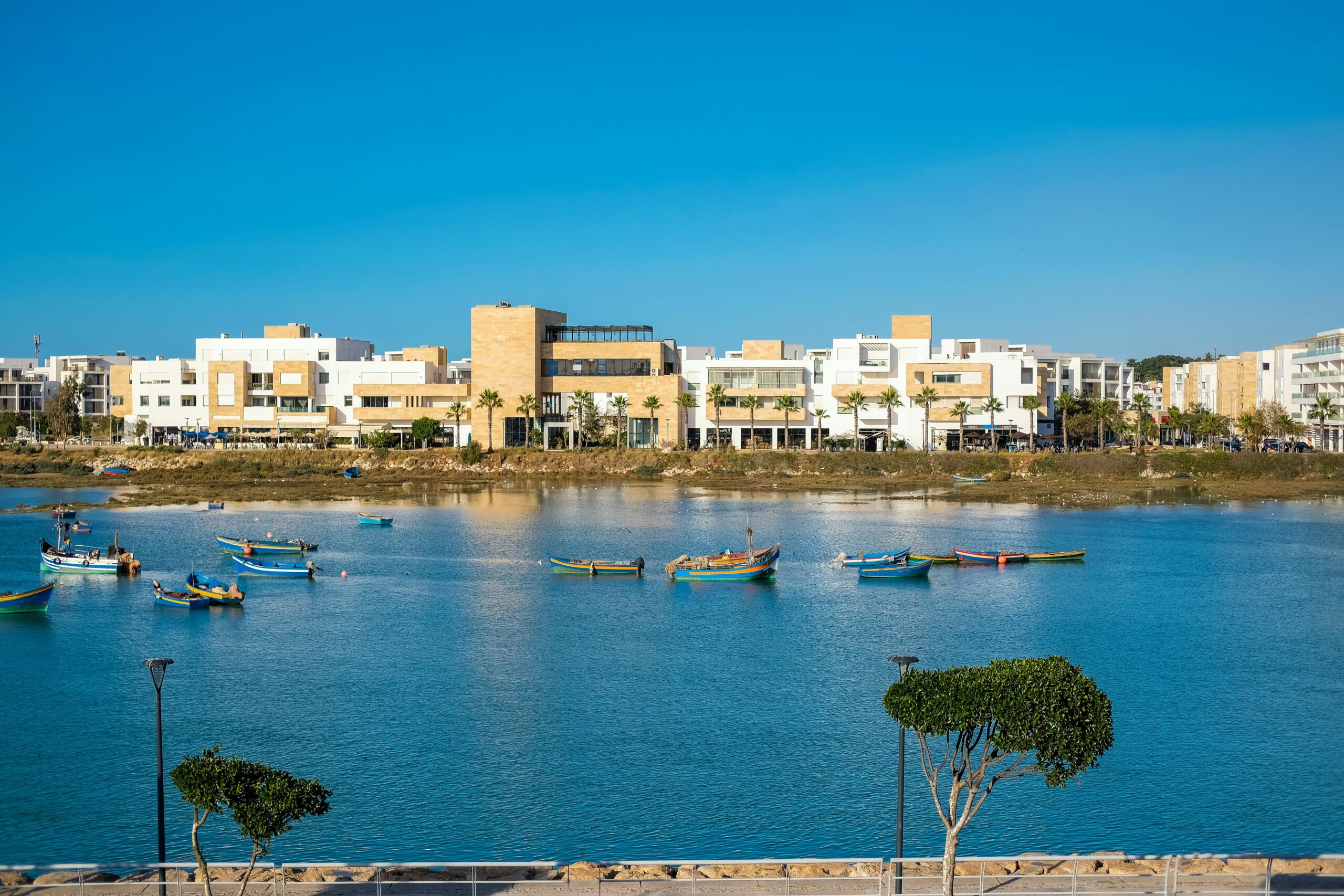The North African region is entering a period of profound economic recalibration as countries respond to domestic challenges, global market volatility, and shifting geopolitical dynamics. Libya is preparing to re-enter the international energy market with its first oil exploration bidding round in 17 years, signaling a long-awaited opportunity for foreign investment and national revenue growth. Egypt is experiencing a slowdown in inflation, giving much-needed relief to households and businesses while supporting broader economic stabilization. Morocco is maintaining a cautious monetary stance amid persistent global uncertainties, reflecting a strategy of resilience and prudent economic management. Collectively, these developments highlight North Africa’s strategic balancing act between fostering economic growth, maintaining financial stability, and attracting investment, all while navigating regional and global complexities.
Libya’s Oil Sector Revival: Strategic Opportunities and Challenges
Libya, home to Africa’s largest proven oil reserves, has remained underexplored for nearly two decades due to prolonged political instability, ongoing security challenges, and limited foreign investment. The upcoming oil exploration bidding round is the first of its kind since 2008, representing a historic attempt to attract international energy companies and signaling Libya’s ambition to restore its position as a major player in the global energy market.
The country’s oil sector remains the backbone of its economy, with crude exports contributing over 90% of total export revenues and roughly 60% of government income. A successful round of exploration and production could substantially increase national revenues, stabilize the Libyan dinar, and provide critical funding for post-conflict reconstruction projects, including infrastructure rehabilitation, public service enhancement, and regional development initiatives. The inflow of foreign direct investment could also strengthen Libya’s banking sector, improve capital markets, and provide employment opportunities, particularly in energy-related industries and technical services.
International energy companies are expected to show strong interest, particularly in offshore blocks and untapped desert reserves, which remain largely unexplored due to logistical and security constraints. Analysts also anticipate growing involvement in renewable energy initiatives, including green hydrogen, solar, and wind power projects that could complement traditional oil and gas operations. By integrating conventional hydrocarbon resources with sustainability-oriented projects, Libya can align its energy sector with global decarbonization trends while diversifying long-term revenue streams.
However, significant challenges remain. Political instability, fragmented governance, and security vulnerabilities have historically deterred foreign investment. Libya will need to strengthen regulatory and legal frameworks, ensure transparent and enforceable contractual agreements, and provide operational security to attract long-term investors. Infrastructure rehabilitation, particularly pipelines, refineries, export terminals, and port facilities, will be essential to operational efficiency. If these challenges are addressed successfully, Libya’s energy revival could position the country as a strategic energy hub for Europe and Africa, capitalizing on rising global demand for diversified energy sources while enhancing regional influence in energy geopolitics.
Egypt’s Inflation Eases: Implications for Consumers and Businesses
Egypt’s inflation rate moderated to 10.3% in September, marking a significant reduction in the persistent price pressures that have affected households and businesses for the past several years. The moderation is largely attributed to stabilizing food prices, improved agricultural output, a stronger Egyptian pound, and the Central Bank of Egypt’s calibrated monetary interventions. This easing comes amid global economic pressures, including rising energy prices and supply chain disruptions, highlighting the effectiveness of Egypt’s fiscal and monetary policies in mitigating external shocks.
The easing inflation has direct benefits for consumers, particularly urban households, which have borne the brunt of high food and energy costs. Reduced price pressures improve purchasing power, stimulate consumer spending, and support domestic demand, which in turn can boost the performance of the retail, services, and manufacturing sectors. Households are also better positioned to save and invest, which can strengthen the overall financial ecosystem.
Businesses across manufacturing, retail, and services stand to gain from lower input costs, improved cash flows, and reduced uncertainty in pricing and contracts. This environment encourages investment, expansion, and job creation, supporting broader economic growth objectives. Analysts see this trend as a positive validation of Egypt’s broader economic reform agenda, which emphasizes fiscal consolidation, structural reforms, and private sector-led growth. However, inflation remains elevated relative to global averages, and continued monitoring will be necessary to maintain macroeconomic stability, especially in light of potential future fluctuations in global commodity prices and domestic energy costs.
Morocco’s Monetary Policy: Caution Amid Global Uncertainty
In Morocco, the central bank has opted to maintain its key interest rate, reflecting a deliberate and cautious approach amid ongoing global financial volatility. The decision underscores Morocco’s strategy to balance economic growth with financial and price stability while avoiding unnecessary shocks to domestic credit markets.
Maintaining interest rates ensures that credit remains accessible and affordable for businesses and households, supporting sectors that are critical for economic growth, including tourism, manufacturing, agriculture, and renewable energy projects. This measured approach allows Morocco to maintain economic momentum while protecting against the risks posed by fluctuating global commodity prices, interest rate hikes in developed markets, and currency volatility.
This monetary strategy also demonstrates Morocco’s ability to navigate complex global economic conditions while maintaining investor confidence. By prioritizing long-term resilience, sustainable growth, and stability, Morocco positions itself as a reliable destination for regional and international investors, reinforcing its role as a key hub for trade, investment, and financial services within North Africa. Furthermore, maintaining rate stability helps manage inflation expectations, ensuring that domestic price growth remains moderate even amid external shocks.
Regional and Sectoral Implications
The recent economic developments across North Africa have broad implications for multiple sectors. Libya’s revived oil exploration could attract significant foreign direct investment, stimulate infrastructure development, and generate opportunities in related industries such as logistics, refining, and renewable energy projects. Egypt’s easing inflation may strengthen financial stability, reduce borrowing costs, and enhance confidence for both domestic and international investors, supporting the growth of equity, bond, and credit markets. Morocco’s cautious monetary policy enhances stability and predictability, providing an attractive environment for foreign direct investment and regional trade initiatives.
The broader geopolitical significance of these developments is also substantial. Libya’s energy revival and Egypt’s stabilizing economy could promote deeper regional cooperation, facilitate trade corridors connecting North Africa with the Middle East and Europe, and strengthen economic integration across the MENA region. The combination of energy revival, macroeconomic stabilization, and prudent monetary management enhances the region’s attractiveness as a strategic investment destination, providing both short-term opportunities and long-term growth potential.
Looking Ahead
North Africa’s economic trajectory in 2025 presents a mix of opportunities and risks. Libya’s energy sector revival could transform the country into a strategic energy hub, driving investment, industrial growth, and geopolitical influence. Egypt’s moderation in inflation provides a foundation for sustainable growth, improved consumer confidence, and enhanced business investment. Morocco’s measured monetary stance reinforces economic resilience and stability amid global uncertainties, helping to mitigate external shocks while maintaining domestic growth momentum.
The success of these initiatives will hinge on several key factors: political stability and effective governance in Libya, sustained structural reforms and infrastructure development in Egypt, and prudent monetary and fiscal management in Morocco. For investors, policymakers, and businesses, the coming months will be critical in determining whether these measures can deliver long-term economic growth, regional integration, and strategic resilience across North Africa.
Conclusion
North Africa stands at a pivotal crossroads, balancing risk and opportunity. Libya’s oil sector reopening, Egypt’s improved price stability, and Morocco’s careful monetary stance reflect a region navigating the complexities of a globalized economy with strategic foresight. By fostering political stability, transparent investment frameworks, and sustainable economic practices, North Africa has the potential to transform into a strategic hub for energy, finance, and trade, offering significant opportunities for regional and international stakeholders. The next phase of development will determine whether the region can leverage these opportunities to achieve sustainable growth, economic resilience, and global competitiveness.
Related Blogs: https://arabworldleaders.com/







